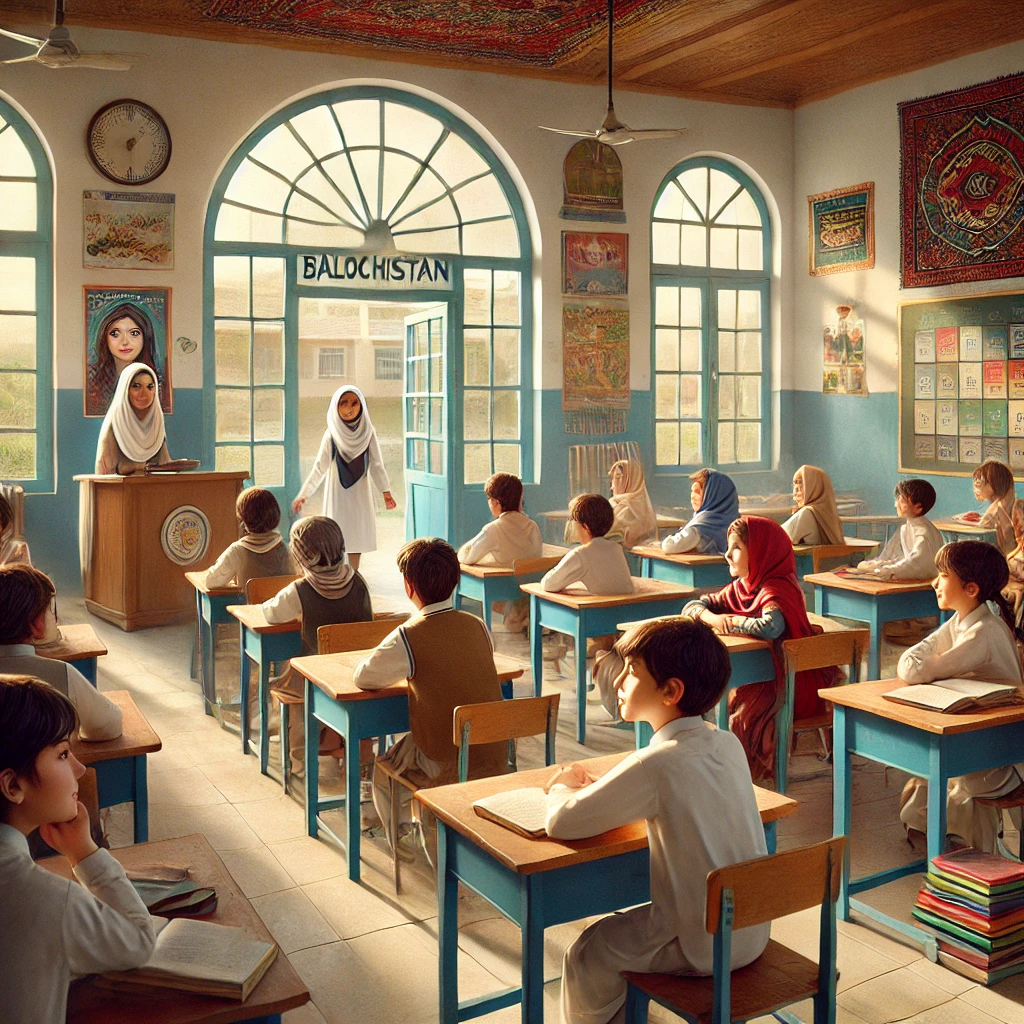Education Desk:
Loralai: A transformation is unfolding in Balochistan’s schools, as students now step into modern classrooms with improved facilities, fostering a renewed passion for learning. Thanks to an initiative aimed at upgrading educational infrastructure, schools across the province are witnessing higher enrollment rates and a better learning environment.
For Syada Falak Shah and her classmates at Government Girls High School Pahari Muhalla in Loralai, the changes have been life-changing. Previously, students crammed into four small classrooms, with many forced to sit on verandas or carpets due to a lack of space. Now, thanks to a new 12-classroom building with proper furniture, they enjoy a comfortable and motivating atmosphere.
Ms. Qamar Sultana, the school’s principal, expressed her excitement about the impact of these improvements. “The new building has changed everything. Enrollment has surged by 60% because parents now feel confident sending their daughters to school,” she said, highlighting the community’s overwhelming support.
The United Nations High Commissioner for Refugees (UNHCR), in collaboration with local authorities, has spearheaded these efforts, providing essential infrastructure upgrades in 119 public schools across eight districts in Balochistan in 2024. Nearly 6,000 students have directly benefited, with 85% of them being Pakistani students.
The initiative extends beyond classroom upgrades, aiming to increase access to quality education for both boys and girls in Balochistan, Punjab, Khyber Pakhtunkhwa, Sindh, and Islamabad. UNHCR’s program includes accelerated learning programs and financial aid, particularly for girls and young women, ensuring they continue their education at the secondary level.
For Syada, these changes have fueled her aspirations. “I love coming to school even more now. I dream of joining government services one day, and this new environment inspires me to work harder,” she said with determination.
Since 2009, UNHCR, in partnership with the Commissionerate for Afghan Refugees, has implemented over 4,500 projects across health, education, infrastructure, livelihoods, water, sanitation, and energy sectors, benefiting approximately 14 million people. Of these, 84% are from Pakistani communities, while 16% are refugees. The total investment in these projects stands at $273 million.
Beyond education, UNHCR has also provided humanitarian assistance during natural disasters, conflicts, and emergencies, supporting affected Pakistani communities in times of crisis.
With better schools and improved facilities, Balochistan’s students are now more motivated than ever, proving that investing in education is key to shaping a brighter future.


